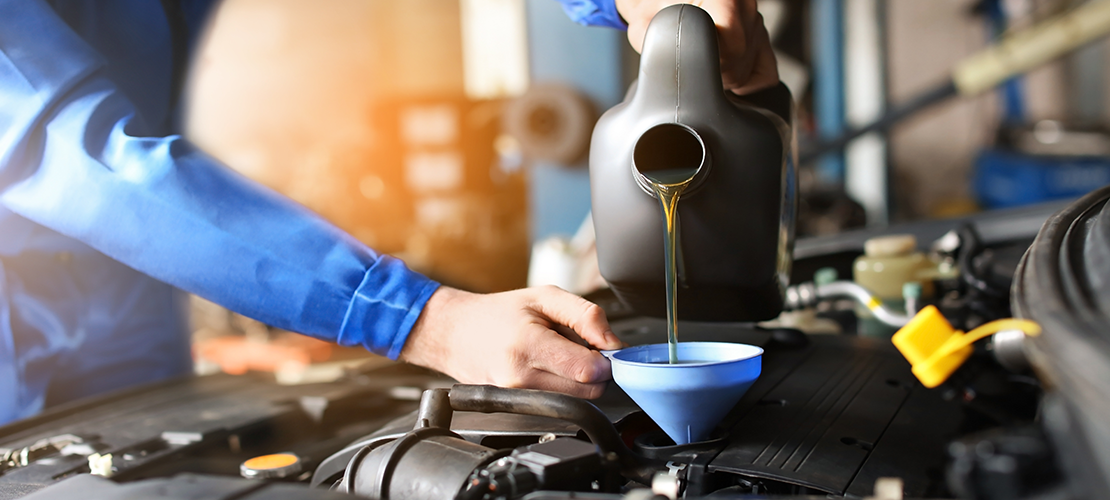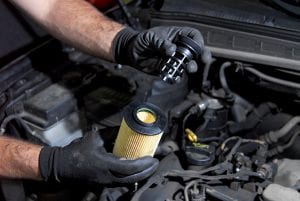Oil does a variety of important things in an engine. The oil filter helps to remove any contaminants from your engine’s oil which can accumulate over time. If the oil in a car or vehicle is left unfiltered for a long period of time, it could become saturated with tiny, hard particles and this dirty oil can cause damage to the bearing surfaces in an engine.
How the filter works
The function of an oil filter is actually quite straightforward. The filter is shaped as a cylinder, housing and is mounted on your engine, sealed securely to prevent oil leakage. Inside the housing is a mixture of filter material and media. The oil pump begins to force oil from the engine into the filter housing and back into the engine. As the engine is running, oil flows through the oil filter and is cleaned by a filter element, which is typically made of paper or synthetic fibres. The contaminants are trapped in the filter element, while the clean oil is allowed to pass through. This helps to keep the engine running smoothly and prevent damage caused by contaminants in the oil. The filter element needs to be replaced regularly to maintain the effectiveness of the oil filter. This ultimately traps any particles that are larger than 15 microns although some filters are capable of filtering even smaller particles.
Why do you need an oil filter?
To ensure that your motor runs effectively your oil will be constantly pushed around the engine. As the oil moves around the engine, it’ll likely pick up small bits of dirt, grit and metal shavings. When these contaminants get kept in suspension, the oil will become thicker which forces the engine to work harder to keep up with that level of performance.
Left unchecked this can impact things like wear and tear and fuel efficiency. These things will only grow to become bigger problems over time. This is where your oil filter comes in, the filter will catch the contaminants and stop them from being pushed around your engine. This means that the oil can do its job and last a lot longer than it otherwise would.
Choosing the right oil filter
Choosing the correct oil filter for your vehicle is one of the most important decisions of owning one. Most oil filters look very similar, but small differences in the threads or gasket size can determine whether or not a particular filter will work better on your ride. The best way to discover which oil filter you should buy is by consulting your owner’s manual or by checking a parts catalogue. Using the wrong oil filter can cause oils to leak, or an ill-fitting filter could just fall off completely.

What makes a good car oil filter
Compatibility: Before you consider anything else, you must consider the compatibility of the oil filter with your car/vehicle. The filter must be able to fit in the make and model of your car’s engine and be secured with no issues. The filter manufacturer should have access to a list or a table of compatible vehicle models and engines.
Oil Type: Oil filters have media inside them that takes care of the filtration of the oil. As this media is not made equally for synthetic and oil, you must check whether the oil filter is compatible with the type of engine oil in your car. This information can be found on the label or online product description.
Mileage: Oil filters should be replaced or cleaned depending on mileage level. A typical oil filter is designed to last up to 5,000 miles. High-performance oil filters can last from 6,000 to 20,000 miles.
Oil Filters by Filter Services
Discover our selection of top-of-the-range oil filters. Whether you need a new oil filter for your lorry, tractor or construction vehicle, Filter Services has a selection of solutions, owned by the biggest brands! Give our team a call on 01246 802 822 to find the right oil filter for your vehicle or discover our products here.
